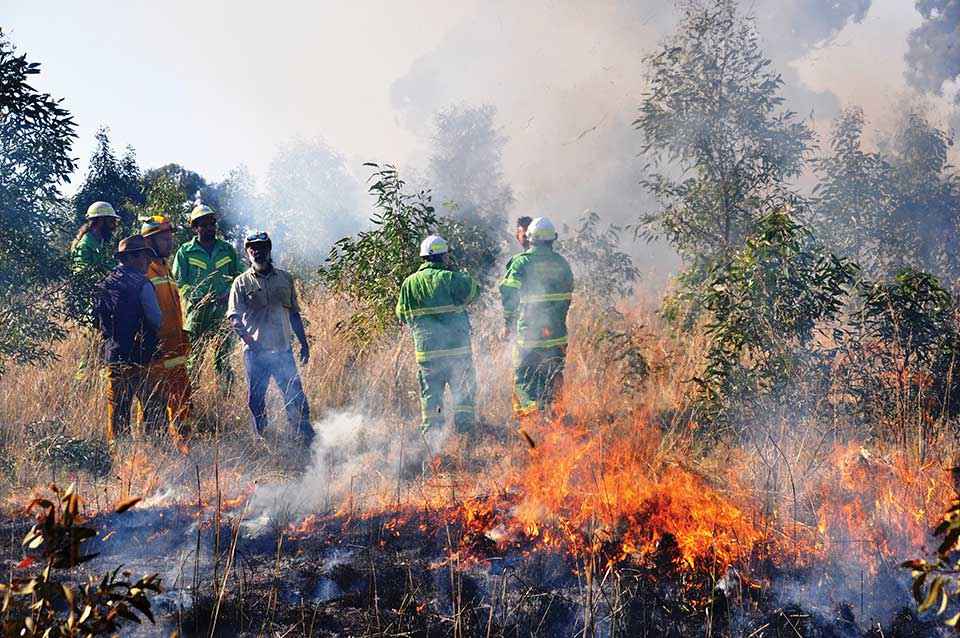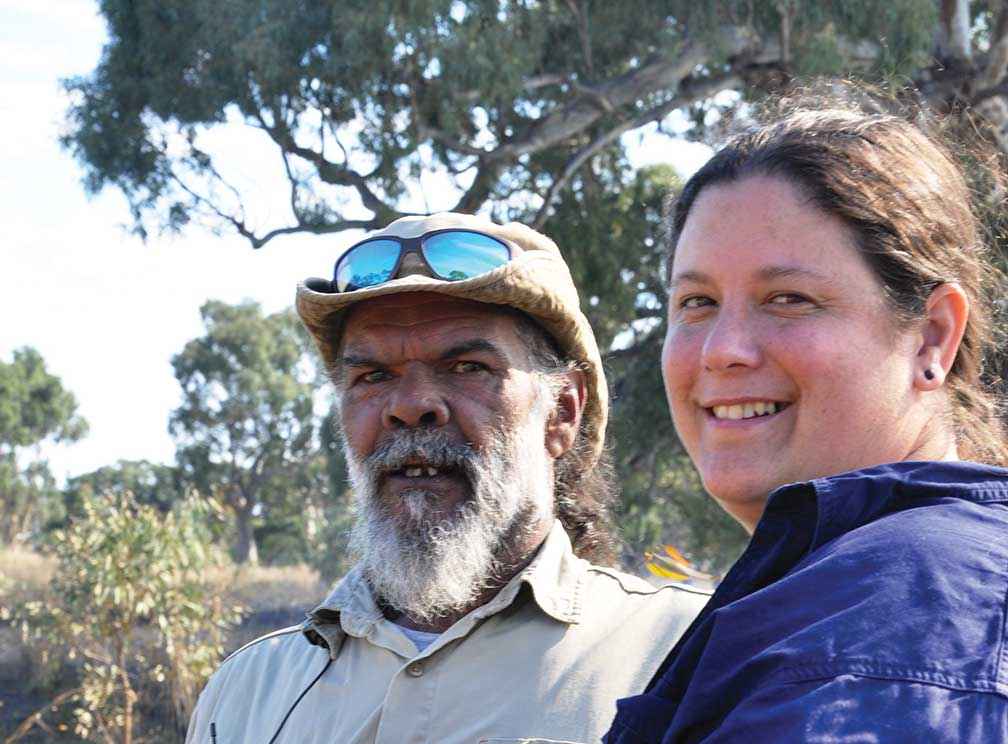Victorian Landcare Magazine - Spring 2017, Issue 70

Angela Jeffery is a descendant of the northern Wiradjuri Nation of NSW, whose ancestral links stem from Peak Hill, Wellington and Dubbo. Wiradjuri people are river people. The area was known as the land of three rivers; Marrambidya/Murrumbidgee (Murrumbidgee River), Galari (Lachlan River) and Wambuul (Macquarie River).
When she was growing up Angela loved being on Country with her family. Camping at Wambuul and other surrounding waterways was a common pastime during the warmer months. This connection influenced Angela to undertake a Degree in Environmental Science, majoring in fisheries, later becoming the first Aboriginal trainee at Fisheries Victoria, based at Queenscliff.
During her traineeship Angela acquired funding from the Fisheries Research and Development Corporation and produced two educational posters on Indigenous fishing methods. One of the posters was completed in partnership with Traditional Owners – the Wathaurung Aboriginal Corporation (Wadawurrung), and the other highlighted a number of traditional fishing practices from around Australia.
In 2014 Angela moved to Colac to take up the position of Indigenous Natural Resource Management Facilitator for the Corangamite CMA. In this role she has led a project assisting Wadawurrung and other members of the Aboriginal community within the region to participate in traditional fire practices for the health of Country and people.
Wiyn-murrup Yangarramela means ‘fire spirit comes back’ in the Wadawurrung language.
The project is part of the Corangamite CMA Indigenous Participation Program (supported through the Australian Government’s National Landcare Programme). It recognises the strong social and cultural needs of Traditional Owners and Aboriginal people in Victoria to connect with Country through fire practice.
Angela Jeffery describes fire practice as a means of fulfilling cultural obligations to manage Country, as well as a way of maintaining wellbeing through traditions associated with the cleansing and healing of Country through fire.
“My job is very rewarding as it’s such a connecting experience for people to get together on a burn. We share. We learn from each other and we honour Mother Earth,” Angela said.

Above: Angela Jeffery with Ngarigo Elder Uncle Rod Mason at a demonstration of traditional burning techniques.
Angela has coordinated trial sites for traditional burns, complementing existing vegetation management plans, and in April 2017 she organised a demonstration of traditional and CFA burning techniques at Teesdale that was attended by more than 60 stakeholders.
“We’ve had landholders contacting us about running trial plots on their properties using traditional burning techniques to improve natural resource management outcomes. In the future conducting traditional burns could be a good employment opportunity for Aboriginal people – and, of course, a way for them to continue to meet traditional obligations to manage Country,” Angela said.
Angela’s ability to bring together the scientific and cultural components of the traditional fire practices program, Wiyn-murrup Yangarramela, has been critical to its success.
Aboriginal people involved in the Indigenous Participation Program will have access to formal training in fire, flora and fauna identification, biodiversity monitoring techniques, experiential delivery of traditional burning practices and knowledge exchange between participants.
Uncle Byron Powell, a Wadawurrung – Wathaurung Aboriginal Corporation Elder, said at the Teesdale traditional burning event: “We are breaking new ground, to see first-hand so many groups coming together to manage this land and heal Country together.”